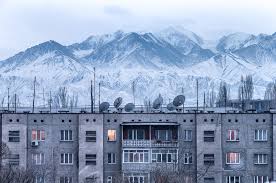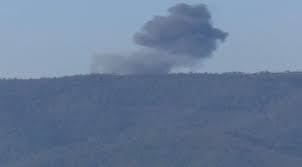(Eurasianet) Speculation is mounting that Kyrgyzstan wants to repair relations with the United States after a dispute over human rights torpedoed ties last summer.
Kyrgyzstan's dealings with the United States have historically oscillated from warm to chilly and back again. In 2001, Bishkek became a lynchpin of the NATO military campaign in Afghanistan by agreeing to host a strategically important US airbase, but lately attitudes toward Washington have been in a frosty phase, accompanied by an intensifying turn to Russia.
Matters came to a head last July, when Bishkek repealed a cornerstone 1993 cooperation treaty between the two countries in reaction to the US State Department bestowing a human rights award on a jailed ethnic Uzbek activist. […]
The evolution of US interests in the region is expected to have a determining factor on negotiations. "Given the [US government's] modest ambitions, reluctance to invest, and return to viewing Central Asia through the political reform, rather than geopolitics lens, Bishkek will need to do the heavy lifting if the objective is to increase substantive bilateral cooperation," said Eric McGlinchey, an associate professor at George Mason University's School of Policy, Government, and International Affairs.
While Russia and China may be in varying stages of, likely temporary, economic retreat, both countries should retain a predominant role in Kyrgyzstan and the surrounding neighborhood. "We should be careful not to overstate Washington's influence in Kyrgyzstan or in Central Asia broadly. The United States is a distant third to Russia and China as far as resources external powers are willing to bring to the Central Asian negotiating table," McGlinchey said.
"To the extent that the [US government] is interested in Kyrgyzstan, it is interested in promoting political and economic reform. Human rights is central to this agenda," McGlinchey said. "The State Department has framed – I think correctly – Askarov's imprisonment as a violation of human rights. To abandon Askarov now would be inconsistent with Washington's Kyrgyzstan strategy."
Read More © Eurasianet










